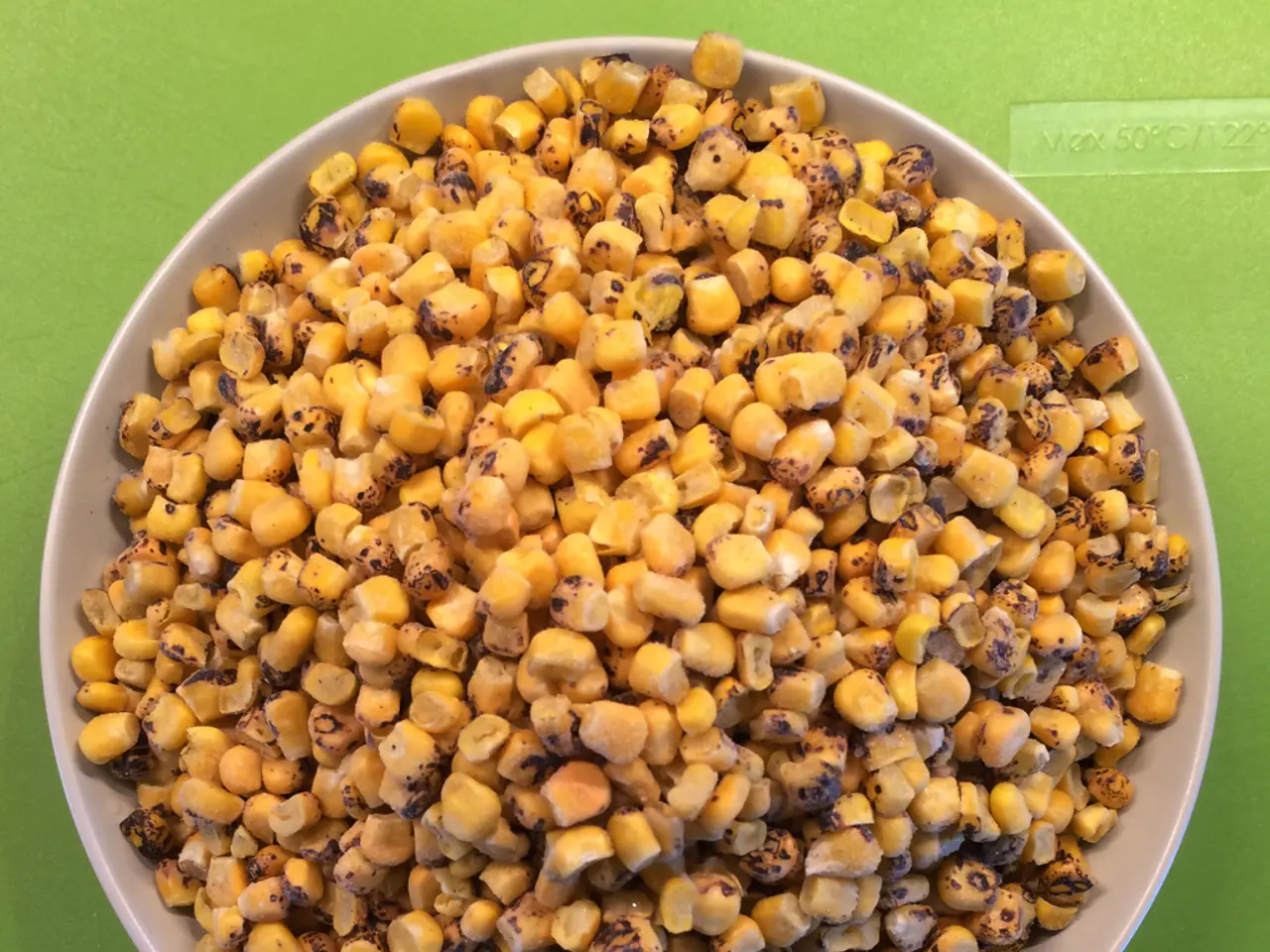The projected value of the vegetable seed market is anticipated to reach approximately USD 18.3 billion by the year 2034, with a compound annual growth rate (CAGR) of 6.8% from 2025 onwards.
The vegetable seed market, a crucial player in advancing global food security, sustainable farming, and economic resilience, is poised for significant growth, especially in India.
In 2024, the market was dominated by inorganic seeds, accounting for 78.4% of the market by form. However, the focus on quality seeds is central to agricultural productivity, enhancing yields, supporting climate resilience, and empowering smallholders. High-quality seeds allow for more resource-efficient farming by reducing waste while maintaining yields.
Hybrid vegetable seeds, known for their higher productivity, faster maturity, uniform quality, and disease resistance, are widely used. Solanaceae crops led the market by crop type, capturing a 36.7% share in 2024.
India's rich germplasm diversity, varied agro-climatic zones, and significant investments in research and development (R&D) are the key factors driving the growth of the vegetable seed market in the country. These elements support enhanced vegetable production and seed innovation, enabling India to lead a global vegetable seed market expected to reach $8.45 billion by 2030.
Agricultural policy and infrastructure improvements, rising horticulture output, expansion of cultivated areas, adoption of climate-resilient seeds, and policy reforms and innovation ecosystem are additional factors contributing to this growth.
Government focus on rural infrastructure development, such as irrigation, cold storage, and improved logistics, helps increase productivity and reduce post-harvest losses, indirectly boosting demand for quality vegetable seeds. The growing horticulture sector, particularly vegetable cultivation, benefits from improved seed varieties that are more productive and disease-resistant, meeting the rising domestic and export demand.
Increasing acreage under key crops, including vegetables, driven by favorable monsoon patterns and farmer confidence, supports market expansion for vegetable seeds. As climate variability affects agriculture, heat- and drought-tolerant seed varieties contribute to yield stability and reduce crop failures, encouraging seed market growth.
Encouragement of seed innovation through policy reforms and investment fosters the availability of diverse, high-quality seeds adapted to different regions and conditions.
Together, these factors are projected to grow India’s domestic vegetable seed market from $740 million in 2023-24 to approximately $970 million by 2030, at a CAGR of about 4.6%, positioning India as a major player in the global vegetable seed industry.
On the global stage, Asia-Pacific led the global vegetable seed market with a 47.9% share, valued at USD 4.5 billion in 2024. Notable developments include BASF | Nunhems expanding its partnership with TS&L Seed Company for distribution of spinach, lettuce, watermelon, and melon seeds. Additionally, Takii rebranded its Sahin portfolio of non-GMO open-pollinated vegetable and flower seeds, and Bayer collaborated with South Korean biotech firm G+FLAS to develop genome-edited tomato varieties enriched with vitamin D3.
[1] MarketandMarkets. (2022). Vegetable Seeds Market by Type (Organic, Inorganic), Form (Seeds, Seedlings, and Plugs), Crop Type (Solanaceae, Brassicaceae, Cucurbitaceae, and Others), and Region - Global Forecast to 2030. Retrieved from https://www.marketsandmarkets.com/Market-Reports/vegetable-seeds-market-1341.html
[2] NITI Aayog. (2020). National Strategy for New India @ 75: Transforming Agriculture. Retrieved from https://niti.gov.in/writereaddata/files/document_publication/National-Strategy-for-New-India-at-75-Transforming-Agriculture.pdf
[3] International Maize and Wheat Improvement Center (CIMMYT). (2020). Climate-Smart Agriculture in South Asia: Opportunities and Challenges. Retrieved from https://www.cimmyt.org/en/sites/default/files/2020-07/cimmyt-csa-south-asia-report-2020.pdf
[4] Department of Agriculture, Cooperation and Farmers Welfare, Government of India. (2021). Horticulture Sector in India. Retrieved from https://agricoop.gov.in/horticulture-sector-in-india
[5] Ministry of Agriculture and Farmers Welfare, Government of India. (2022). National Mission on Sustainable Agriculture. Retrieved from https://nmsa.nic.in/
- With the predicted growth of the global vegetable seed market, reaching $8.45 billion by 2030, there could be potential opportunities in the finance sector for investments in seed innovation and agricultural productivity.
- As India's domestic vegetable seed market is projected to grow from $740 million in 2023-24 to approximately $970 million by 2030, there might be increasing demand for financing in the horticulture sector to support the expansion of cultivated areas and the adoption of climate-resilient seeds.




